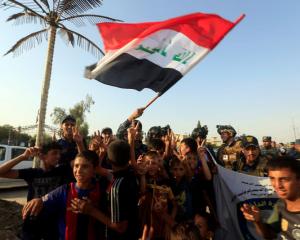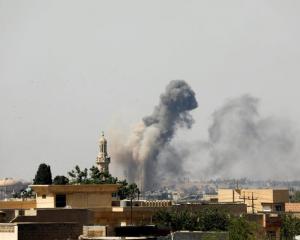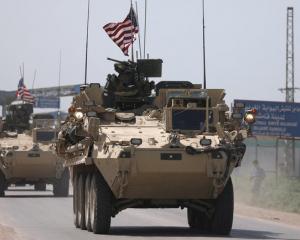A suicide bomber posing as a beggar detonated his explosives inside a main Baghdad Sunni mosque, killing at least 24 people, including an Iraqi lawmaker, and wounding more than 30 others, hospital and local officials said.
The attack occurred shortly after evening prayers at the Umm al-Qura mosque frequented by Iraqi Sunni leaders in the capital's western Ghazaliya district and toward the end of the Muslim holy month of Ramadan.
"The suicide bomber entered acting like he was hurt. He entered into the main prayer area and he began prayers. We started to be suspicious. But when the prayers finished, he blew himself up," said Ahmed Abdul Razaq, who was at the mosque.
The bomber's dismembered remains lay in the main prayer area and blood spatters trailed across the mosque carpet where blast victims had been carried outside, a Reuters journalist said.
An official at Yarmouk Hospital said at least 24 bodies had been brought there as well as 30 wounded. A Baghdad security spokesman earlier said at least six people were killed and 12 more were wounded.
Ahmed Adbul Ghafour al-Samarrai, head of the Sunni Endowment which runs Sunni religious sites, told local television from hospital that the bomber had been waiting for him. He was slightly wounded.
Violence in Iraq has dropped sharply since the bloody days of sectarian slaughter four years ago, but both Sunni Islamists linked to al Qaeda and Shi'ite militias carry out almost daily attacks as US troops prepare to withdraw at year end.
Sunday's bombing was the most serious attack since August 15 when a series of suicide bombings, car-bombs and roadside explosives killed at least 70 people across the country. Officials blamed local Iraqi al-Qaeda affiliates.
Attacks on mosques are especially sensitive in Iraq, where a fragile power-sharing government among Shi'ite, Sunni and Kurdish blocs is still struggling to overcome mistrust and tensions after the inter-communal violence of 2006-2007.
US troops are scheduled to leave Iraq at the end of the year, and insurgents and militias are increasing targeting local government buildings and Iraqi security forces in an attempt to destabilise the government









